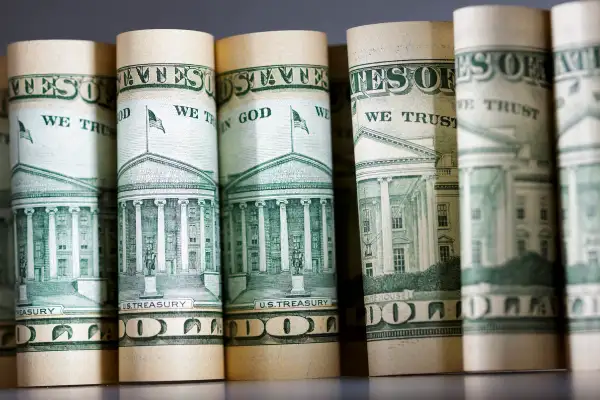Thinking of Cashing Out Your Stocks Post-Brexit? Do This Instead.
Money is not a client of any investment adviser featured on this page. The information provided on this page is for educational purposes only and is not intended as investment advice. Money does not offer advisory services.

As markets dip worldwide in the wake of the Brexit vote, there’s a big temptation to convert stock holdings into nice, safe cash. But while cash has a place in your portfolio, it pays not to overdo it.
“The worst thing any investor can do at this point is to raise cash now” by selling stocks, says financial adviser V. Raymond Ferrara, head of ProVise Management Group in Clearwater, Fla. The reason: Unloading stocks in a panic is bad strategy, because over the long term they are vital to building your wealth.
But cashing out is just what investors have been doing. The movement into cash got under way last year, thanks to a late summer stock-market swoon and another this past winter. The equities rout following the British referendum to exit the European Union will surely shove that trend into overdrive.
According to Lipper research, for the week ending last Wednesday (the day before the Brexit vote), investors yanked $1.8 billion out of stock mutual funds and plugged $1.2 billion into money market funds. Much like bank savings accounts, money funds are the equivalent of cash. You can pull your money out on short notice, and money funds won’t suffer losses like stocks can—and, lately, have.
Before you make any moves, here are a few things to consider about your cash:
It’s possible to earn an okay return on cash investments. By the reckoning of Bankrate.com, savings accounts and money markets pay an average 0.11% annually, far below the current rather tame inflation rate.
But lately you can find a few decent ways to make more than that pittance. Goldman Sachs Bank will pay you 1.05% yearly for a savings account. Bankrate lists a bunch more like this, with the top rate (1.1%) from Dime Savings Bank.
True, that's still not a lot of money. On an annual basis, as of May, the Consumer Price Index is up 1.0%. So taking inflation into account, one of the higher-paying bank or money fund accounts at best would have broken even. The point is that, if you shop for the right provider, your cash doesn’t have to be eaten alive by inflation.
Consider also that while the Federal Reserve is unlikely to raise short-term rates any time soon, thanks to the Brexit fallout, some day it will. Ten years ago, in 2006, taxable money funds paid 4.5%.
Your cash may already be working for you. You need not simply sit on a cash stash. Deploying it to purchase bargains during a market tumble is a very smart approach. Bank stocks, for instance, have gotten trashed in Brexit's wake, even though the big banks last week passed the Federal Reserve's stress test. They have twice the capital needed to weather an economic storm. And when interest rates finally rise, their profits will too. The SPDR S&P Bank exchange-traded fund took a 5.6% shellacking Monday. It's on sale.
Mutual fund managers know this, and lately have amassed strong cash hoards to give them what Wall Streeters call “dry powder” to use for such opportunities. Part of their move probably is due to caution—more cash means fewer of their securities will suffer in a down market. In the most recent Bank of America Merrill Lynch survey of mutual fund managers, cash levels averaged 5.7% of their portfolios, the most since November 2001, during the recession that ensued once the tech-stock bubble burst.
To be sure, they often fattened their cash balances by selling stocks, something you don't want to do. Leave that method to the pros. If you want to emulate their value-oriented buys, beef up your cash account with contributions from your paycheck.
Cash should serve as ballast for your portfolio. “The purpose of cash is to provide adequate levels of liquidity and safety,” says Lewis J. Walker, president of Walker Capital Management in Peachtree Corners, Ga. Many advisers think people should have a minimum of three to six months of living expenses salted away in a cash account for emergencies like a job loss.
Safety is the prime directive for where to store the money. As Dan Crimmins, co-founder of Crimmins Wealth Management in Woodcliff Lake, N.J., advises clients: “You can keep this money in a bank account—which the Federal Deposit Insurance Corp. insures up to $250,000—for protection, not to generate returns.”
How to use cash is always a topic of debate in the investing world. With its inability to provide you with tidy returns, as stocks can when things are good, some say cash is trash. But given its relatively risk-free nature, others say cash is king, especially in times of turmoil, like now. One thing is clear: Regardless of how much of it you carry, cash is important to your portfolio’s well-being.
